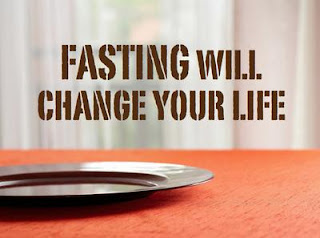During the Season of Lent, the church is called to a time of holy introspection, fasting and prayer. We are to contemplate the life and example of Jesus, hold our life up against his, and make some honest assessments.
Through that
process, a time of repentance and change for the better is the hope, but none
of this sounds particularly enjoyable. In our society self-abasement, guilt and
personal accountability are increasingly counter-cultural. “Have it your way!” “Just Do it!” “Ain’t
nothing gonna break my stride!” are slogans of the world and of America’s sense
of privilege.
Fasting has
a long history of spiritual benefit, and the season of Lent is a good time to encourage
it in your churches. In the ordination
vows of all Methodist pastors since our founding, John Wesley asks, “Will you
practice fasting and abstinence, both by precept and example?” The ordinands standing before me always say
“yes.”
During this
season of Lent, let us all, clergy and laity, take this seriously, because it
has great spiritual and temporal value. I can’t think of anything more important
than our spiritual journey with the Lord, especially during these transitional
times in the life of the church and of the world.
In his book Freedom of Simplicity Christian author Richard
J. Foster writes:
Fasting helps to give us
balance. It makes us more keenly
sensitive to the whole of life, so that we do not become obsessed with our
consumer mentality. It is something of
an inner alarm to help us hold our priorities straight, to give us a sense of
spiritual sensitivity. Fasting reveals the things that control us.
Fasting
usually involves abstaining from food or drink for a period of time in order to
focus on prayer and meditation. Fasting can also include abstaining from other
things, such as the social media, shopping or any form of personal addiction.
Whatever the
nature of the fast, it should always include a time of intentionally listening
to God’s Spirit deeply speaking to you about the things you need to change, to give
up, or to do. Sometimes God’s voice takes a long time to discern, and this
involves patience, self-control and surrendering to God’s timing.
In addition,
true fasting has “roller blades” on its sneakers. The Old Testament prophets derided the temple
religious rituals that had no temporal signs of behavioral improvement. It was often
an empty show of piety in order to look holy and not grounded in true worship.
Zechariah 7:5 prophesied, “Say to all the people of the land and the priests,
‘When you fasted and mourned in the fifth month and in the seventh, for these
seventy years, was it for me that you fasted?’” Likewise Isaiah 58:3 said, “On
the day of your fasting, you do as you please and exploit all your workers.”
Fasting and
abstinence is not a piety show. True fasting is a call to social justice. Again
from the prophet Zechariah, “Thus says the Lord of hosts, ‘Render true
judgments, show kindness and mercy to one another; do not oppress the widow,
the fatherless, the sojourner or the poor; and let none of you devise evil
against another in your heart.’” (7:9-10)
The prophet Isaiah
emphasizes loosening the chains of injustice, untying the cords of the yoke, setting
the oppressed free, sharing food with the hungry, providing shelter for the
poor wanderer, clothes for the naked, and taking care of one’s own family.
(58:6-7).
Now you
might be thinking, “I don’t oppress people, and I help out at the food bank at
church, and I am not responsible for the refugee children at the border being
separated from their mothers.”
True fasting
involves mercy as well as justice. Injustice has complicated layers of political
maneuvering. It is just plain difficult! That why most people would rather feed
the hungry than tackle the root causes of poverty and suffering. It is our Christian duty to take this on, and
scripture backs it up.
Archbishop Desmond
Tutu once said, “If you are neutral in situations of injustice, you have chosen
the side of the oppressor. If an
elephant has its foot on the tail of a mouse and you say that you are neutral,
the mouse will not appreciate your neutrality.” (Oxford Essential Quotations, 5th edition)
Fasting and
praying can give you some “next steps.” And God will be with you on the
journey. I pray you are having a blessed
Lenten Season, full of serious contemplation, as well as a response to injustice.
The two are inseparable.





No comments:
Post a Comment